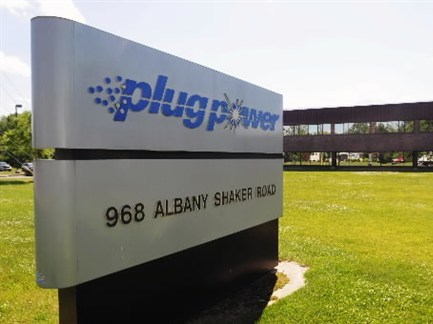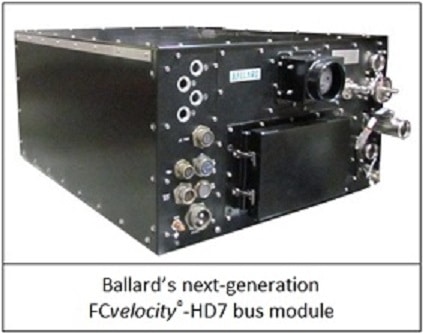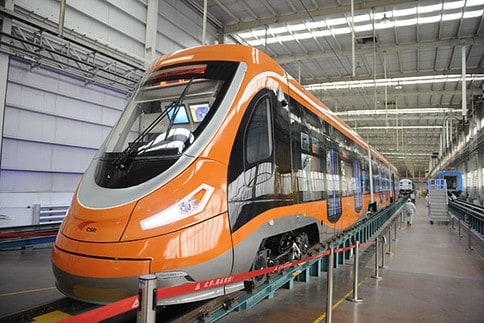
Investors are cheering a newly relevant Ballard Power, but peer Plug Power appears to be driving the bus in the sector’s rally. There’s no news on Ballard Power (TSX:BLD) today, but that hasn’t stopped the stock from rising on better than average volume.
Investors in the Vancouver-based company likely know the drill; check Ballard’s peers for news. As the TheStreet reported this morning, Plug Power was active early after its CEO Andy Marsh announced on a 10am EST conference call that the company would update investors on plans for a recent acquisition and nine recent deals that total nearly $80-million in bookings.
The unexpected renewed interest in hydrogen fuel cells has much of the sector moving in lockstep.
Shares of Plug Power (Nasdaq:PLUG) spiked as high as (US) $8.21 during the conference call, but at press time had fallen to just $7.03, down 3.8%. Ballard hit its high of (C) $4.65 at the exact same moment (10:02 am EST) and has also trailed off. Fuelcell Energy (Nasdaq: FCEL) followed the same pattern, as did Ballard’s Canadian peer Hydrogenics (TSX:HYG).
In fact, the six-month charts of all fuel cell stocks are almost mirror images of each other; Ballard hit a high of $7.63 on March 10, its peers hit 52-week highs the same week.
Why the sudden interest in fuel cells, which were tossed out as as seemingly uneconomical more than a decade ago?
Byron Capital analyst Dev Bhangui says that while numerous technologies have been fighting for space in the renewable energy storage market, hydrogen-based solutions have a clear edge because they are simple, high capacity, flexible and economical. Hydrogen, notes the Byron Capital analyst is the renewable energy source closest to being utility grade. For uses such as backup power, hydrogen solving a problem for utilities who have been forced to curb their use of the sources due to the instability of their supply and lack of storage buffers in traditional grid designs.
The Byron Capital analyst says that throughout its history there were problems with Ballard’s business model. Its focus on developing fuel stack to automobile OEMs, he says, was simply unsustainable because of the protracted timeline to commercialization. Selling to systems integrators didn’t work because the margins were simply too low.
But the Byron Capital analyst says a recent shift in business model towards becoming a systems builder and solutions provider have moved Ballard up the fuel cell value chain. He says the effect on gross margins, which he believes are moving towards 30%, is dramatic considering the company’s gross margins just four years ago were close to 4%.
At press time, shares of Ballard Power on the TSX were up 4.1% to $4.31.
_____________________________________________________________________________________________________________
Leave a Reply
You must be logged in to post a comment.




 Share
Share Tweet
Tweet Share
Share



Comment